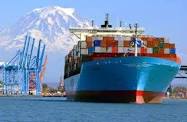Find out the challenges faced by Britain's closest neighbour. How Brexit Is causing problems for Ireland
Now that the United Kingdom has finally cut all ties with the EU, the effects of Brexit are starting to become starkly apparent. With the UK officially a third country, one of the places feeling the consequences is Ireland.
It is often said that if the UK gets a cold, Ireland gets pneumonia. Although citizens of the Republic had no say in the vote to leave the EU, Britain's closest neighbour now faces some huge challenges when it comes to international trade in the post-Brexit world.
Thankfully for Irish citizens, the 2 countries still form the Common Travel Area, meaning that nationals of both can live and work in the other without visas or other paperwork. If the UK expands its Electronic Visa Waiver (EVW) to EU citizens, as planned, it is unlikely that Irish nationals will be included in this. See further information about the EVW.
However, the situation has most definitely changed for Irish companies shipping goods to and from the UK. It is also a big challenge for those transporting goods to continental Europe, since the quickest and easiest way was previously via England.
No more land bridge from Ireland to the continent
For decades, the quickest way for Irish exports to reach continental Europe was via the UK. With just 2 short ferry trips, the south of the UK provided a "land bridge" from Ireland to the rest of the EU. Around 150,000 trucks take this route per year.
However, with the UK no longer part of the bloc, there will now be checks going in and out of the UK. Moreover, there will be extra tariffs on goods re-entering the EU from the UK, even if they were originally shipped from an EU member state.
This means that because of Brexit, getting products between Ireland and the continent just became more expensive and time-consuming.
One potential solution is the addition of an additional direct ferry from Rosslare to Dunkirk, France, which began operations on 2 January. However, for those transporting time-sensitive goods, this is less efficient than the previous route.
Irish Sea customs delays
One of the immediate effects of Brexit is customs checks on goods moving from the UK to the EU, and that includes Ireland. In fact, with the agreement that the customs border will be in the Irish Sea, there are now also checks between Northern Ireland and the rest of the UK.
2021 marks the first time that goods crossing between the islands have been subject to checks since 1992, when the EU single market began.
Companies transporting products must state the origins of these goods and make import and security declarations. In addition, hauliers must complete pre-boarding notifications for shipping companies in order to skip further checks once the goods arrive on the other side of the sea.
Plus, Department of Agriculture inspectors need 24-hour notice for food of animal or plant origin being imported, which is subject to another round of regulatory checks.
Unfortunately, many companies in both the UK and Ireland have found themselves woefully unprepared for the changes in regulations and trailers heading in both directions have encountered long delays due to inadequate paperwork.
Bare shelves in Irish shops and supermarkets
With delays on goods coming into Ireland from the UK, there have been reports of supermarket shelves sitting empty and business unable to get the products they need. From car parts stranded at ports to children's sweets like Percy Pig being unavailable, Ireland is beginning to feel the squeeze of Brexit.
What's worse is that a number of British companies have notified their Irish customers and subsidiaries that they will stop shipping goods across the Irish Sea unless the recipient pays the new tariffs and shipping costs.
The situation in the North
The decision to place the border in the Irish Sea effectively leaves Northern Ireland in the EU free market, despite being part of the United Kingdom. Although this decision is unpopular with many unionists, who favour a close relationship with the rest of the UK, it upholds the conditions of the Good Friday Agreement, which brought an end to armed conflict on the island.
After decades of sectarian violence, the agreement, brokered in the late 1990s, ushered in an era of peace, with paramilitary groups such as the Provisional IRA, UDA, and UVF disbanding and disarming.
In recent years, the spectre of Brexit has brought fears that a hard border between the North and the Republic would reignite the conflict and bring a return to the Troubles.
With the current deal, it seems that peace will be maintained. This comes at a certain price, however. Northern Ireland is already suffering some of the same effects as the Republic when it comes to trade from Britain due to it still being part of the customs union.
Why are there so many problems?
Much of the blame is being directed towards the British government and corporations for failing to use the year's transition period given to them to prepare for trade after Brexit. Chief executive of the Irish Exporters' Association Simon McKeever said:
"They have no idea what's required of them. They believe that this is an Ireland-only problem, but they are going to see the same problems with the rest of the EU next week. They are not sure what level of information they should provide in the first place. There is very little coming in, most of the stoppage is that it's stuck in warehouses in the UK, that's because the UK entity does not know what it is supposed to be doing."
Many Irish companies have found themselves equally in the dark about how to proceed. It has been reported that some members of the Irish Exporters' Association only started asking what steps they needed to take in December - less than a month before the changes were due to come into effect.






